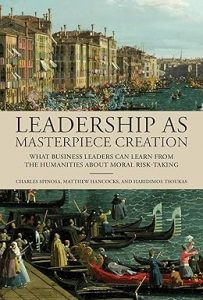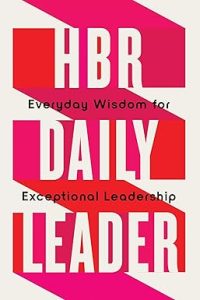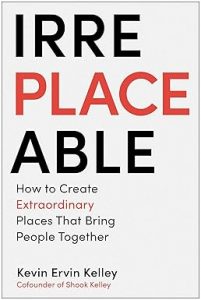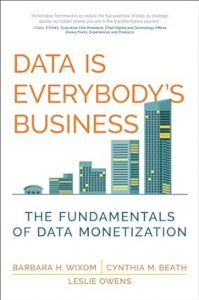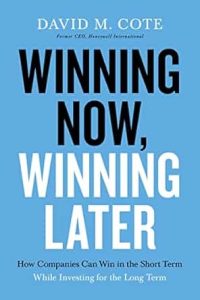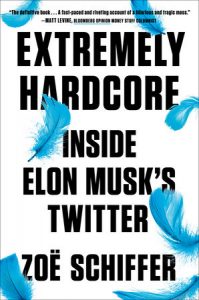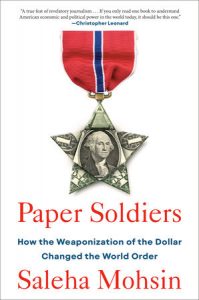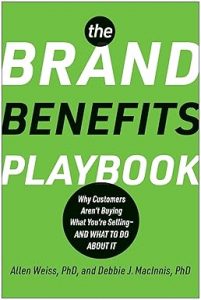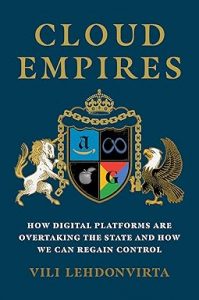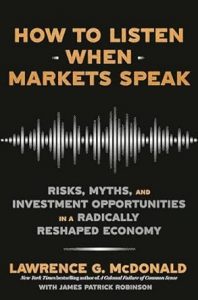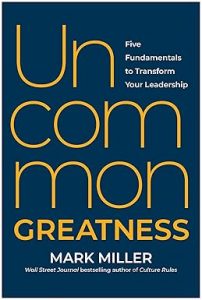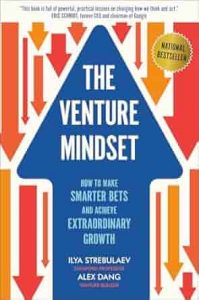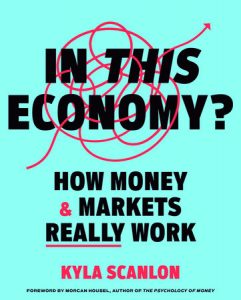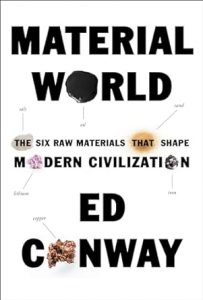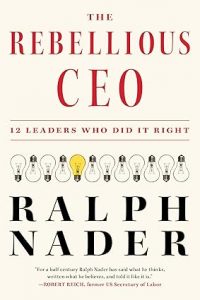Data Is Everybody’s Business
₦35,000.00A clear, engaging, evidence-based guide to monetizing data, for everyone from employee to board member.
Most organizations view data monetization—converting data into money—too narrowly: as merely selling data sets. But data monetization is a core business activity for both commercial and noncommercial organizations, and, within organizations, it’s critical to have wide-ranging support for this pursuit. In Data Is Everybody’s Business, the authors offer a clear and engaging way for people across the entire organization to understand data monetization and make it happen. The authors identify three viable ways to convert data into money—improving work with data, wrapping products with data, and selling information offerings—and explain when to pursue each and how to succeed.
Key features of the book:
• Grounded in twenty-eight years of academic research,including nine years of research at the MIT Sloan Center for Information Systems Research (MIT CISR)
• Definitions of key terms, self-reflection questions, appealing graphics, and easy-to-use frameworks
• Rich with detailed case studies
• Supplemented by free MIT CISR website resources (cisr.mit.edu)
Ideal for organizations engaged in data literacy training, data-driven transformation, or digital transformation, Data Is Everybody’s Business is the essential guide for helping everybody in the organization—not just the data specialists—understand, get excited about, and participate in data monetization.
The Venture Mindset
₦30,000.00The Venture Mindset is a playbook on how to adapt to a rapidly changing world, make smarter bets, launch new ventures, and transform traditional organizations into hubs for innovation, from a top Stanford professor and a technology executive.
Venture capitalists are known for their extraordinary ability to spot opportunities. They know how to identify emerging trends, how to bring new industries into being, and when to hold them and when to fold. Their unique mindset has made them the force behind world-changing companies such as Amazon, Google, Moderna, SpaceX, and Zoom.
Stanford Professor Ilya Strebulaev has devoted two decades to studying VCs’ counterintuitive approaches to decision-making and the reasons behind the successes and failures of corporate innovations. Alex Dang has witnessed up close how VCs’ thinking and mechanisms can create successful businesses at companies like Amazon and McKinsey.
Combining their insight and extensive experience, they present nine distinct principles that will help you make better decisions, transform your business, and achieve remarkable results, no matter your industry.
In The Venture Mindset, you’ll learn:
* Why you should encourage dissent and be wary of consensus
* The number one killer of innovation in traditional corporate environments
* Why it’s crucial to learn when to ‘pull the plug’ on initiatives
* One question VCs ask that will change the way you evaluate opportunities
* Why failure is not just an option, but a necessity
Packed with entertaining stories and scientific precision, The Venture Mindset is a must-read for anyone who wants to be better equipped for the era of uncertainty when industry, company, and career can be disrupted overnight. The Venture Mindset will teach you more than how to simply survive. It’ll teach you how to win big.
In This Economy?
₦30,000.00
The stuff you really need to know about how the economy works? It’s pretty simple. Yes, even if you were bored to tears in economics class, or if you’re cross-eyed from reading painfully convoluted—or straight-up misguided—financial commentary. In this particularly disorienting era, many have turned to a young economic analyst named Kyla Scanlon for answers.
Now, Scanlon is writing a definitive, approachable guide to the key concepts and mechanics of economics and the most common myths and fallacies to steer clear of. Through her trademark blend of creative analogies, clever illustrations, refreshingly lucid language—and even quotes from poetry, literature, and philosophy—she answers questions such as:
- What is Fed cred, Fed flexing, and Fedspeak?
- Is our national debt really a threat?
- What is a “mild” recession, exactly?
- If you’re thinking about quitting your job, what economic indicators should you be keeping tabs on?
At a time when experts overcomplicate simple things loudly, choosing to generate smoke rather than clearing the air, In This Economy? shows that understanding the markets—and the systems they operate in—is easier than you think. Whether you’re worried about your mortgage rate, job security, bank account balance, or the health of the broader economy, this concise and witty guide will give you the confidence to make smarter financial decisions—no matter what the headlines say.
Material World
₦30,000.00The fiber-optic cables that weave the World Wide Web, the copper veins of our electric grids, the silicon chips and lithium batteries that power our phones and cars: though it can feel like we now live in a weightless world of information—what Ed Conway calls “the ethereal world”—our twenty-first-century lives are still very much rooted in the material.
In fact, we dug more stuff out of the earth in 2017 than in all of human history before 1950. For every ton of fossil fuels, we extract six tons of other materials, from sand to stone to wood to metal. And in Material World, Conway embarks on an epic journey across continents, cultures, and epochs to reveal the underpinnings of modern life on Earth—traveling from the sweltering depths of the deepest mine in Europe to spotless silicon chip factories in Taiwan to the eerie green pools where lithium originates.
Material World is a celebration of the humans and the human networks, the miraculous processes and the little-known companies, that combine to turn raw materials into things of wonder. This is the story of human civilization from an entirely new perspective: the ground up.
The Rebellious CEO
₦30,000.00Over the course of 7 decades Ralph Nader has been Corporate America’s fiercest critic. Supreme Court Justice William Powell singled out Nader in his infamous memo as the “single most effective antagonist of American business… [the] target of his hatred… is corporate power.”
But now, in a book that will surprise both his fans and critics, Nader profiles a small group of CEOs who he believes performed extraordinarily well as business leaders and civic reformers, some well-known, some not, who should be celebrated as exceptions whose life and career should be a course of emulation and inspiration for students of business, executives and the wider citizenry.
This select group of mavericks and iconoclasts — which includes The Body Shop’s Anita Roddick, Patagonia’s Yvon Chouinard, Vanguard’s John Bogle and Busboys and Poets’ Andy Shallal —give us, Nader writes, “a sense of what might have been and what still could be if business were rigorously framed as a process that was not only about making money and selling things but improving our social and natural world.”

